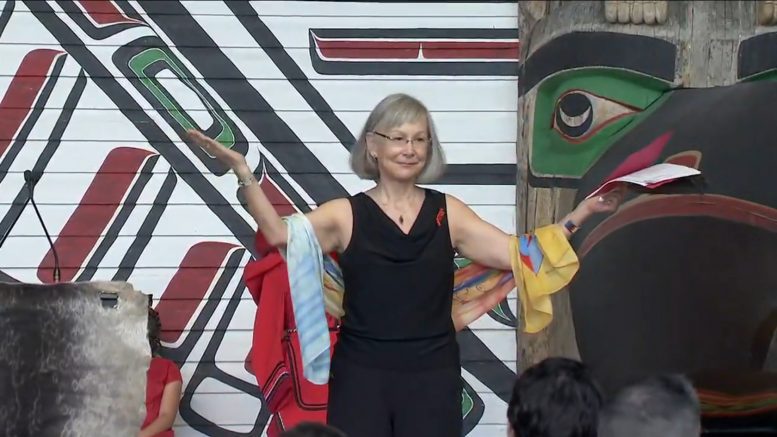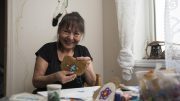Lesa Semmler says she is “insulted” by the federal government’s delay to implement a national strategy addressing Missing and Murdered Indigenous Women and Girls (MMIWG).
June 3 marks the one-year anniversary since the commission released its report on MMIWG.
The report includes 231 Calls to Justice such as the implementation of a National Action Plan for the federal, provincial, territorial and municipal governments.
Calls to act
Lesa Semmler, MLA for Inuvik-Twin Lakes, got choked up while delivering a member’s statement calling on the Government of the Northwest Territories (GNWT) to implement the report’s recommendations from the report.
“While I can certainly appreciate that we’ve all been busy dealing with the pandemic, I was terribly disappointed and insulted by the news of this delay,” she said.
She added Indigenous people can’t wait any longer and she personally will not let the issue be forgotten.
“We as Canadians, as a government, as an Indigenous woman, as a mother, as an aunt of Indigenous women and girls cannot afford anymore delays,” she said passionately.
She was not alone in calling on governments to act.
The commissioners of the MMIWG, said in a joint statement they “deplore inaction on the part of some governments.”
The Calls for Justice are not recommendations or best practices, but are legal imperatives under international and domestic human rights norms and laws, the statement said.
Dene National Chief Norman Yakeleya said in a press release he is calling on the GNWT to undertake its obligations under reconciliation and follow the Calls to Justice.
“Women are the backbone to our nationhood, and we must do everything in our power… By making our women in society safe again,” Yakeleya said.
Government response
Todd Sasaki, spokesperson for the department of Indigenous Affairs, said in an email the progress to develop a national action plan is in the works but has been slowed by the COVID-19 pandemic.
“These are unprecedented times and a number of intervening events have seen progress slowed,” he said.
However, the GNWT has prepared an initial response to the Calls for Justice, titled Doing Our Part, Sasaki said.
At the Legislative Assembly, Caitlin Cleveland, MLA for Kam Lake, questioned Diane Thom, minister on the Status of Women, on a variety of subjects involving on MMIWG. This included the possibility of passing a missing persons legislations in the NWT, giving the police more access to search warrants to help find missing people.
Thom responded that the GNWT has not explored this type of legislation, but said she is open to having further discussions on the subject.
Premier Caroline Cochrane tweeted the MMIWG provides a path forward to end the violence and help the communities heal.
Today marks the 1 year anniversary of the release of the final report of National Inquiry into Missing and Murdered Women. It provides us with a path forward to end the violence, heal, and honour Indigenous women, girls, and 2SLGBTQQIA individuals as they should be honoured.
— Caroline Cochrane (@CCochrane_NWT) June 3, 2020
The GNWT said in August 2019, the next Legislative Assembly elected in October should prioritize the MMIWG ’s report.
MMIWG findings
The MMIWG Final Report found violence against Indigenous women and girls as a form of gender-based genocide.
The report followed 15 community hearings with 2,386 participants — including Cindy A. from Yellowknife.
In the inquiry, Cindy A. spoke about her grandmother, Mary Adele D., a Dene woman who was killed in a violent attack, a press release said.
“As Cindy recommended during her courageous testimony, we will use our Dene Laws influenced by the stories of Dene grandmothers to guide us in a good way,” Yakeleya said in a press release.
The National Inquiry into MMIWG was officially launched by the federal government in 2016 to investigate systemic causes of violence against Indigenous women and girls.
The end goal is to offer recommendations that provide safety and reconciliation between the marginalized communities and the Canadian government.
Something Yakeleya says hasn’t been accomplished.









